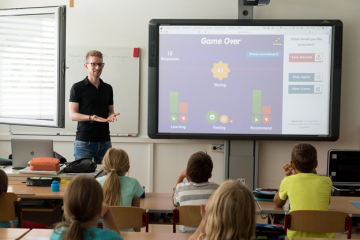I remember the joy I felt when my daughters finally began reading out loud on their own. All of the time spent on the little take-home books from first grade and the flash cards of common sight words had finally paid off. Once the flash cards and phonics books are no longer needed, what do you do when your child can read on his own? Here’s what NOT to do:
Don’t stop reading to and with your child.
Reading to your child can be a valuable support to your child’s reading development even when your child begins reading independently. You can introduce your child to books at a slightly more advanced level than his or her own independent reading level, or continue to re-read books of your child’s choosing. You can even take turns reading with your child–either line by line, chapter by chapter, or letting your child read books to you, and then reading to your child. You are an important model of fluent reading, and your child will benefit from the continued practice of reading out loud. More on Reading Aloud
 Don’t push your child to read hard books.
Don’t push your child to read hard books.
One note to keep in mind – it’s important to refrain from “insisting” that your child read challenging books before he/she is ready. As they start grade school, many children feel pressure from parents or peers, or from wider societal expectations, to start shunning picture books or anything they deem to be “too young” for them.
Children who feel driven to read advanced material can end up viewing reading as unpleasant or a chore. This can result in a child actually avoiding reading altogether, and missing opportunities for valuable practice. So although as a parent you can definitely encourage your child to challenge him/herself with new books and new interests, it is best to not insist on books that you think your child “should” be reading. Start browsing book reviews with your child.
Don’t be too picky.
Remember, the idea is to keep your child engaged and interested in reading books – not an easy task with the popularity of video games, computers, and cell phone apps. What your child reads is less important than how much she reads. With 37% of fourth-grade children in the U.S. reading below a proficient level, it is more important than ever to encourage and help develop a love of reading early on. I like to give gift cards for the local bookstore as presents. Weekly trips to the library with a treat after can be fun for the whole family!
If you do have any concerns about the books your child is reading–for example, if you think your child is reading books too far below or above a comfortable reading level– your child’s teacher can provide you with valuable feedback. Through their work with your child and their familiarity with grade level materials, teachers can help to suggest reading material to best support your child’s continued growth.
Related Posts:
Children’s Reading Preferences
What Kinds of Books Should My Child Be Reading?
Do you have any special routines you’ve developed to encourage your independent reader to keep reading? Please share them or other comments here.



4 Comments
Heleen Visser · September 19, 2012 at 1:53 pm
I totally agree with everything you said. I find that teachers and parents push children too quickly to read work that is above their level. It is more important for children to be completely at ease with high frequency words and 3 and 4 letter words.
We add 2 or 3 extra stories a week apart from their reading lessons. We read loud and we lift the book higher than his eyes. That was a tip that I learned 15 years ago.
I find that my son is more prepared to read if I read the story to him first. Even if he doesn’t look at the book at the same time, it gets rid of any tension.
Tammy Bennecke · September 19, 2012 at 2:34 pm
Thank you for sharing Heleen – it’s good to hear from parents who are working with their children to improve literacy. 🙂
Mary D'Antoni · September 17, 2012 at 5:48 pm
To encourage children to continue to read higher level thinking strategies should be taught. This improves understanding, comprehension and confidence.
Tammy Bennecke · September 19, 2012 at 2:33 pm
Yes, Mary, continuing to stretch a child’s learning and teach those higher level thinking strategies is very important. Thanks for sharing! 🙂
Comments are closed.